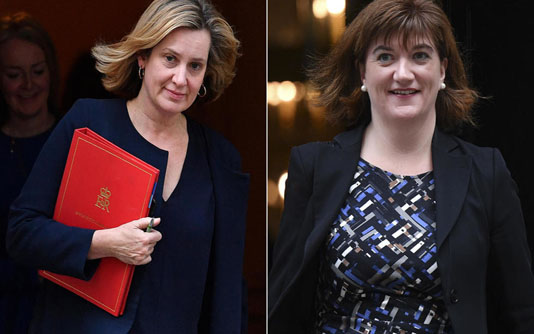BRAINTREE, United Kingdom, Dec 8, 2019 (BSS/AFP) – Candidates hoping to be
elected to parliament in Britain have faced all manner of threats and abuse
in a particularly hostile campaign, with some worried for their safety when
out canvassing.
When one man on Facebook threatened a violent attack on Dominic Graham, the
would-be MP immediately called the police, who made an arrest.
It was far from an isolated case in the run-up to Thursday’s snap polls,
called on the increasingly divisive issue of Brexit.
Graham is standing for the third time for the centrist, pro-EU Liberal
Democrats, who want to cancel Brexit altogether.
“We didn’t see anything close to the threats we’ve been getting in this
campaign,” he told AFP, comparing 2019 with his previous election bids.
When he went knocking on doors in a residential part of Braintree, a town
in Essex, northeast of London, he made sure he was accompanied by a fellow
Lib Dem activist, in line with police and party security instructions.
Ever since entering parliament in 2017, the German-born Wera Hobhouse,
standing for the Lib Dems in Bath, southwest England, has received a stream
of anonymous letters. She informs the police of her campaign movements and
always carries an alarm button in her pocket.
In recent days, her election placards have regularly been destroyed by
unknown assailants, “with such force that I ask myself what would happen if
we crossed paths”, she said.
– Brexit accelerant –
The number of alleged crimes reported by MPs more than doubled from 151 in
2017 to 342 last year, senior police chief Neil Basu told a parliamentary
committee in May.
The first four months of 2019 saw a 90 percent year-on-year increase to 152
— a trend on course to lead to “certainly over 450 crimes this year”, he
said.
Women and ethnic minorities are disproportionately targeted in particular,
said Britain’s top police officer Cressida Dick.
The toxic atmosphere is “unprecedented”, she said, citing “polarised
opinions” changing the nature of protest activity following the 2016 Brexit
referendum.
“The abuse that we’ve had has been Brexit-related — all of it,” said
Graham, sheltering under an umbrella in his party’s yellow and black colours.
He is campaigning on unfavourable territory as the Braintree constituency
voted heavily in favour of Britain’s departure from the European Union.
Conservative Party co-chairman James Cleverly is the favourite to retain
his seat, winning last time with 63 percent of the vote.
– Jo Cox fear –
The fear for candidates’ safety is a reminder of the terrifying scenes in
2016 when pro-EU Labour MP Jo Cox was murdered by a gun-and knife-wielding
neo-Nazi sympathiser.
In November, a man was jailed for 12 months for sending a letter to Change
UK MP Anna Soubry reading: “Cox was first, you are next”.
Several MPs, including two who served in Prime Minister Boris Johnson’s
cabinet, Amber Rudd and Nicky Morgan, are not standing again, citing threats
and harassment.
As for the source of the threats, “many of them are from the more right-
wing, very Brexit side who see some politicians as being traitors to that”,
said analyst Alexandra Kellert, from the global risk consultancy Control
Risks.
“You might start by writing why you disagree with them on Twitter or
Facebook. And then that might develop into stronger feelings,” she added.
– ‘Toxic’ social media –
Lib Dem candidate Rhian O’Connor does not feel particularly concerned when
she goes doorknocking after dark in Greenwich, a “Remain”-backing area of
southeast London.
Nonetheless, she does not go out alone, and never accepts invitations to
step indoors despite the wintry cold.
“It’s definitely more aggressive” than before, she said.
Frustrated “Brexiteers” see her as someone “trying to block what they see
is the biggest democratic project for decades”, she said.
On the doorstep, people are “polite to you” but once indoors they could be
on Twitter “calling you all kinds of names”, she said, adding that social
media had become “a lot more toxic in this environment”.
Graham said his campaign manager runs his Facebook page.
“She gets the full brunt of the abuse and threats,” he said, adding:
“Abusive messages and comments coming at such a rate that she can’t delete
them fast enough.”
Official security guidance to candidates includes taking active steps on
personal safety, keeping records of abuse, limiting online personal
information and reporting intimidation or abuse to internet service
providers.
However, the hostile atmosphere is not enough to discourage all those
candidates standing for Britain’s 650 seats in parliament.
“Democracy doesn’t work if everyone stays at home,” said Hobhouse.



